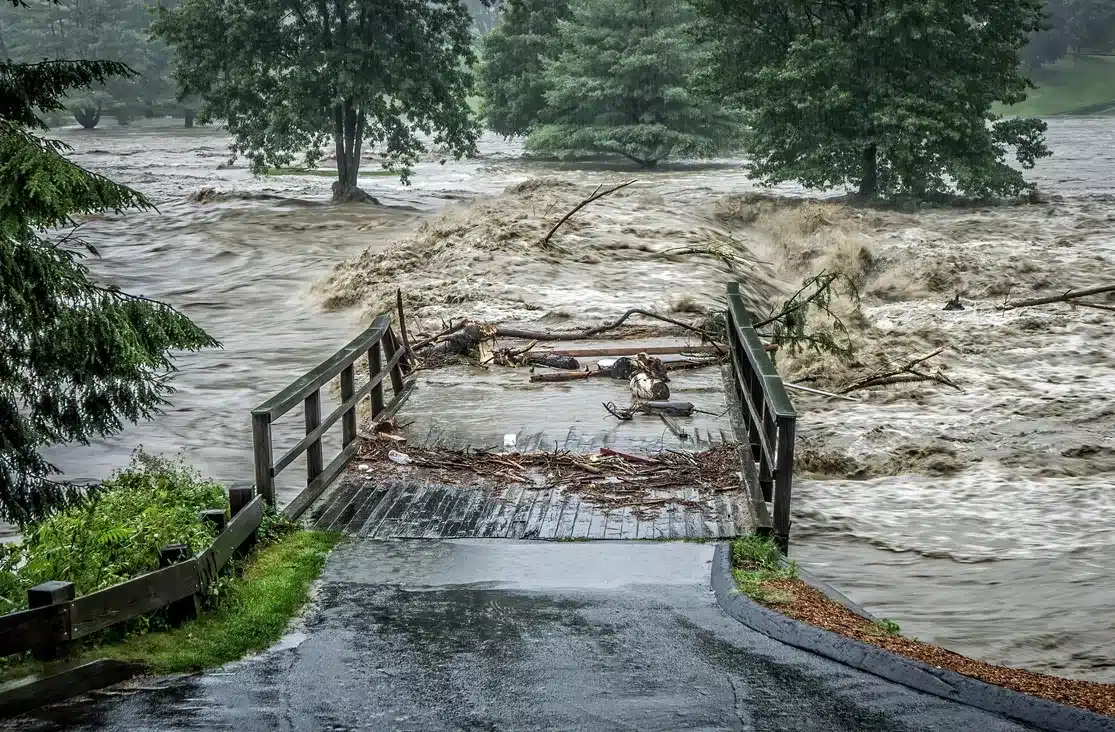The Polish civil law system lacks a definition of “force majeure”. However, in legal theory and jurisprudence, force majeure is often understood as an external, inevitable phenomenon that could not have been foreseen or resisted [1]. Force majeure can refer to events of natural causes (vis naturalis), such as natural disasters like floods, hurricanes, earthquakes, and events of force (vis armata), such as political events like wars, states of war or riots. An example of force majeure is the current flood in Poland affecting the Lower Silesian, Opole, and Silesian voivodeships [2]. This is undoubtedly a natural disaster and thus force majeure, as referred to in the civil code provisions on suspension of the prescription period and liability for damages.
Suspension of the prescription period
According to Article 121 point 4 of the Civil Code, the prescription period does not begin and any begun is suspended for all claims when, due to force majeure, the entitled person cannot enforce claims before the court or any other body authorized to examine claims of a given type—for as long as the obstacle persists. Force majeure creates the only case of suspending the prescription period for all kinds of claims [3]. The suspension of the prescription period provided for in the cited provision applies to all subjects of civil law and all claims they have, the impossibility of enforcement caused by force majeure. The suspension state lasts until the obstacle is removed [4].
The duration of the obstacle may vary in different parts of the country affected by the flood. For example, on September 17, 2024, the Kłodzko District Court is operating, while the Nysa District Court is closed until September 18, 2024 [5]. This does not mean that even if a given court is operating, every subject of civil law can reach or send correspondence to it. Therefore, the objective criterion should be linked to the subjective situation of each subject of civil law [6].
Liability for damage caused by ejection, pouring out, or falling
According to Art. 433 of the Civil Code, the person occupying the premises is responsible for the damage done by throwing out, pouring out, or falling of any object unless the damage occurred as a result of force majeure or solely due to the fault of the injured party or a third party, for whom the occupier of the premises does not bear responsibility and could not prevent their actions.
Disregarding all issues related to the used term “premises”, during a flood, there can be damages caused by objects swept away by the raging water, such as a bicycle from a balcony, which could relieve a person from liability.
Liability for damage caused by the operation of a business or plant
Art. 435 of the civil code stipulates that a businessman running a plant propelled by natural forces (e.g., steam, gas, electricity, liquid fuels, etc.) is liable for damage to person or property, inflicted on anyone by the operation of the company or plant, unless it was the result of force majeure, or solely due to the fault of the injured party, or a third party, for whose actions he is not responsible. This provision also applies to companies or plants producing explosive materials or using such materials. There is, of course, also the possibility of being released from liability for damage caused, for example, by a falling traction pole, if the power plant properly protected this pole from the flood and immediately repaired it after the flood subsided.
Hoteliers’ liability
According to Art. 846 § 1 of the civil code, hoteliers are liable for the loss or damage of items brought in by hotel guests unless the damage happened due to the properties of the brought items or because of force majeure, or resulted solely due to the fault of the injured party, any accompanying person, any employees, or any visitor. A flood that has inundated hotels and boarding houses can be a base to release hoteliers from liability for the damage of guest property caused by water seeping into buildings.
References
[1-6] Information retrieved from specified sources.
Author: Legal Advisor Zbigniew Cieślak, Chałas and Partners Law Firm
Source: https://ceo.com.pl/powodz-jako-sila-wyzsza-skutki-dla-przedawnienia-i-odpowiedzialnosci-94910
